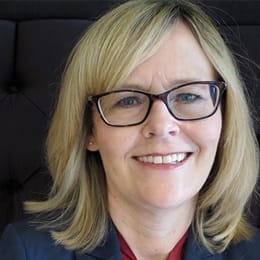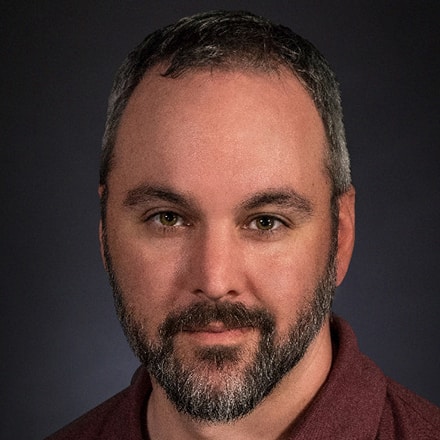Faculty Spotlight: Forensic Psychology Instructor Dr. Patti Butterfield

Dr. Patti Butterfield brings decades of clinical experience to her role as an adjunct instructor in Southern New Hampshire University’s (SNHU) online forensic psychology program. After earning her doctorate in clinical psychology from Oklahoma State University, she worked in psychiatric clinics before a 20-plus year career with the Federal Bureau of Prisons.
Recently she answered questions about her career, connecting with online students and more.
Can you tell us about your professional background?
I obtained my PhD in Clinical Psychology from Oklahoma State University in 1989, and I completed a Post Doctoral Fellowship at the University of Kansas School of Medicine.
Initially, I worked in psychiatric clinics, both inpatient and outpatient, primarily focusing on the treatment of anxiety disorders and eating disorders.
In 1996, I relocated to West Virginia and accepted a position as a staff psychologist with the Federal Bureau of Prisons (BOP). Within weeks of joining the BOP, I realized I had found the career of my dreams, and I spent the next 20 years in a variety of correctional psychology positions.
My final position with the BOP was senior deputy assistant director of the Reentry Services Division, overseeing the work of psychologists, treatment specialists, chaplains, teachers, and reentry specialists across the agency.
What first drew you to higher education?
I have a lifelong love of learning. Growing up, I was fortunate to have parents who encouraged curiosity, creativity and research. Consequently, I have always felt right at home in a higher education environment.
In my graduate program, a typical second-year practicum placement involved teaching "Introductory Psychology" and I thoroughly enjoyed this experience. When the year came to an end, I volunteered to continue teaching through the remainder of my graduate program.
Although higher education is not my primary line of work, I have always taken advantage of opportunities to teach in higher education. Most recently, when I retired from the BOP, I knew I wanted to devote more time to higher education, and I sought out an academic institution aligned with my teaching philosophy — high academic standards paired with ample support for student success — and SNHU was a perfect match for me.
What aspects of your own education have been influential in shaping your career in academia?
Instructors who supported my professional and personal development have been most influential in shaping my career. For example, my high school senior English teacher, Lynette Johnson, inspires me to this day. She perfectly blended high expectations with caring support and genuine enthusiasm for the task of teaching. She was the teacher I want to be, and just like my parents, she deeply reinforced my love of learning.
What attracted you to this field of study? What keeps you excited about it?
Forensic psychology exists at the intersection of two of my primary interests — psychology and the law. This field affords me the opportunity to explore big questions, such as why do people engage in criminal activity, and what can be done to reduce the risk of violence?
My experiences working with criminal justice-involved individuals have been challenging, rewarding and exceedingly interesting. I remain excited because ongoing research contributes to an ever-evolving field, and there is always a new aspect of forensic psychology to explore.
For example, just in my short career with the Federal Bureau of Prisons, I had the opportunity to delve into suicide prevention, risk assessment, restrictive housing, evidence-based mental health and substance abuse treatments, reentry and recidivism reduction, professional development, and quality assurance.
How have you found ways to effectively connect with students?
I believe the online learning environment can be as warm and welcoming as an in-person classroom. I appreciate the opportunity to learn more about my students’ lives, so I encourage introductions and do my best to refer to relevant aspects of their lives throughout the course, such as by introducing students to others with the same major or by offering congratulations for an upcoming graduation or special event.
As another example, after the first week's introductions, I post a map of the U.S. on the discussion board, with all the states represented by students the course highlighted. In sharing this map, I encourage students to post their weekly peer responses to students from the same state or a state they have always wanted to visit.
What brings you the greatest joy in your work as an adjunct faculty?
This question is difficult! I enjoy so many aspects of my teaching experience at SNHU. My most joyful experiences involve students applying concepts to their lives in a unique and meaningful way, students achieving a deeper level of understanding or a new skill, and students meeting with success as they pursue further education.
In fact, one of my favorite experiences is when I learn one of my former students has been accepted to graduate school. Knowing they believe further education is of value, seeing them achieve this level of success, and recognizing they will go on to contribute to this high-demand, high-need field is very gratifying.
What do you feel is unique about the faculty and students you work with?
Their commitment. By and large, I see tremendous commitment to education in the faculty and students at SNHU. While everyone’s circumstances are different, a common theme is a recognition of the value of education and a dedication to achieving academic and professional goals in a busy world amid a myriad of competing demands.
What does SNHU’s mission to transform the lives of learners mean to you?
I believe SNHU’s mission is reflected in my own life. Education has transformed, and continues to transform, my life. Therefore, SNHU’s commitment to facilitating transformational educational experiences for students resonates with me.
What I want for my students is what I have found for myself, education is an incredibly enriching and empowering experience.
Outside of work, what’s something you’re passionate about or really enjoy doing?
Travel. I believe travel closely aligns with my love of learning. I thoroughly enjoy experiencing new cities, countries and cultures, often in the context of a special event, such as a film or literary festival. Stepping outside of my comfort zone is almost always a rewarding experience, even if it’s a little anxiety-provoking at times.
For example, this fall my husband and I completed the Camino Frances, a 500-mile walk across France and Northern Spain. We greatly enjoyed experiencing the beauty of the countryside, learning about different cultures and practicing our Spanish language skills.
A degree can change your life. Choose your program from 200+ SNHU degrees that can take you where you want to go.
Joe Cote is a writer and organic marketer at Southern New Hampshire University (SNHU), where he has worked since 2016. Previously he spent more than a dozen years as a reporter and editor at weekly and daily newspapers in Vermont and New Hampshire. He lives near SNHU's Manchester, New Hampshire campus with his wife and daughter. Connect with him on LinkedIn.
Explore more content like this article

Academic Spotlight: Dr. Laman Tasch, Associate Dean of Academic Strategy, Social Sciences

Why Earning His BA in Political Science Mattered to Anthony Fernandez

What Can You Do With a Master’s in Criminal Justice?
About Southern New Hampshire University

SNHU is a nonprofit, accredited university with a mission to make high-quality education more accessible and affordable for everyone.
Founded in 1932, and online since 1995, we’ve helped countless students reach their goals with flexible, career-focused programs. Our 300-acre campus in Manchester, NH is home to over 3,000 students, and we serve over 135,000 students online. Visit our about SNHU page to learn more about our mission, accreditations, leadership team, national recognitions and awards.


